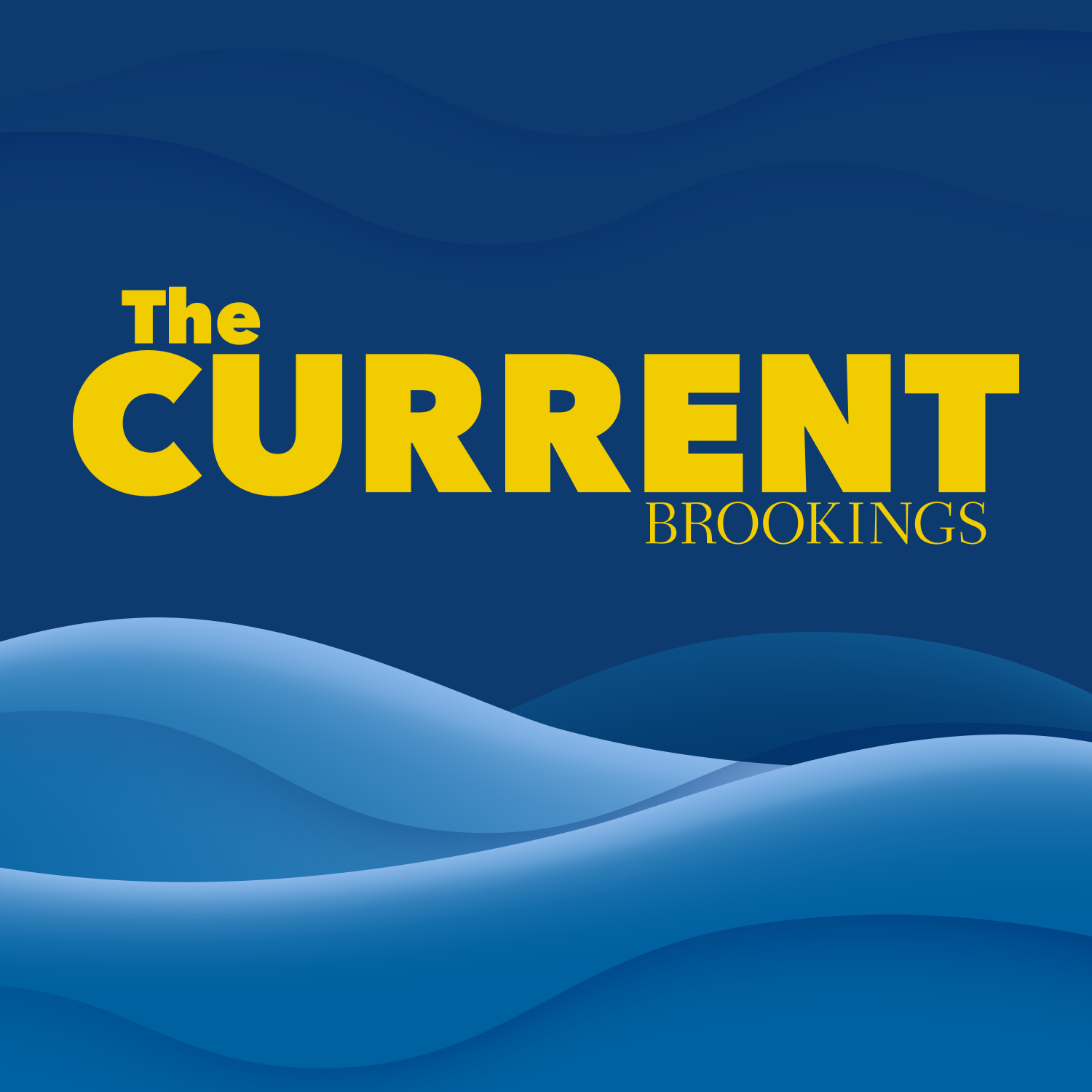Pakistan’s prime minister, Imran Khan, faces a unified opposition coalition and a vote of no confidence in parliament next week. Whether Khan’s government survives the challenge or not, Pakistan’s democracy will suffer as political instability undermines public confidence in the electoral process, argues Madiha Afzal.
Related material:
- The US needs a reset with Pakistan
- Pakistan’s ambivalent approach toward a resurgent Tehrik-e-Taliban Pakistan
- The future of US-Pakistan relations
Listen to Brookings podcasts here, on Apple or Google podcasts or on Spotify, send email feedback to [email protected] and follow us at @policypodcasts on Twitter.
Thanks to audio producer Gaston Reboredo and Fred Dews for their support.
TRANSCRIPT
PITA: Pakistan’s Prime Minister Imran Khan faces a vote of no-confidence in the National Assembly next week, led by united opposition parties and even some defectors from the prime minister’s own party. Here to tell us how Khan’s government came to this crisis point, and the ramifications if the prime minister is ousted is Madiha Afzal, a fellow in the Foreign Policy department here at Brookings. Madiha, thanks so much for talking to us today.
AFZAL: Thanks for having me.
PITA: So Khan was a popular cricket star, he was elected prime minister in 2018 on a reform and anti-corruption platform. During his term, on top, of course, of the COVID-19 pandemic, Pakistan has struggled with high inflation and a weakened economy. So, what can you tell us about why this opposition is coming to a head now? What’s prompted this call for the no-confidence vote?
AFZAL: So on the surface of it, it’s politics, right? The opposition says Imran Khan has failed to deliver, citing inflation, economic pressures, and so on. And there are some disgruntled lawmakers from Khan’s own party who have indicated that they’ll go over to the opposition side, and allies also of the ruling party that help with the coalition government that Khan has who have also indicated that they might be defecting to the opposition. But deeper from that point is Khan’s antagonistic brand of politics that come to a head. You know, his unwillingness to build political consensus, particularly centering on the governance of Pakistan’s largest province, Punjab, who governs it. The chief minister is very unpopular with some folks from Khan’s own party, the opposition, and even the military.
And the opposition has made no secret that it wants Khan out. Three parties and the opposition formed an alliance in 2020 and have engaged in rallies and have tried to have Khan ousted from power for years now. But the deeper factor underlying all of this is that Khan’s relationship with the military, Pakistan’s very powerful military, has changed. It has cooled. The military had stood behind Khan in 2018 and since then, but now there are some fissures that have emerged in Khan’s relationship with the military. And while the military says that it is neutral in this situation, in this political crisis, what many read that as saying is that the military has basically withdrawn its support from Khan.
And this is part of a much larger, longer cycle that reflects on Pakistan’s built-in political instability. Essentially, opposition parties don’t wait for elections to occur, for the previous party to be voted out, or for the prime ministers to be ousted from power and agitate during a civilian government’s rule for their ouster. The result is that no Pakistani prime minister has completed their full term in office, a five-year term in office. No one, though, I should note, has been ousted through a vote of no confidence either; there have been other ways to oust them.
And that longer political cycle of instability always centers around the ruling party’s relationship, in particular, a prime minister’s relationship cooling with the military. And so, in that sense, I think this should be seen as part of a larger pattern of political instability in Pakistan. And where this goes will reflect on how that pattern will continue.
PITA: Thanks, Madiha. I want to come back to this point about the military. They obviously for a long time notoriously very politically influential. I want to ask about what led to this fissure between Khan and the military. I understand there was a dispute in the fall over who is going to be the next head of the intelligence agency in Pakistan. What can you tell us about what has led to this cooling of their relationship and what role the military might be playing with the opposition? Although they’re not openly taking sides, what their role may be in this?
AFZAL: Yeah, the biggest factor in the fissure I would say is what you just mentioned, the ISI chief’s appointment in the fall. The military had presented the candidate for the next chief of the ISI and Khan dragged his feet over that, leading to an impasse. And that really served as an embarrassing episode for the military, the fact that Khan didn’t agree right away to their choice of the ISI chief. And not to get too much into the weeds, but there are a couple of factors at play there. The previous, outgoing chief of the ISI is seen as a Khan loyalist. He’s seen as having helped Khan in the 2018 election and he’s seen as Khan’s favorite to be the next chief of army staff, which is the most powerful position in Pakistan’s military. And there’s also the fact that the current chief of army staff, General Bajwa, his second three-year term, you know he’s already received an extension, is set to expire in November of 2022. So there was a question on whether Khan wanted the previous ISI chief basically to be the next chief of army staff and whether that meant that he wouldn’t be granting General Bajwa another extension, something that I think it’s no secret that General Bajwa would want.
So there’s that factor, but there’s fissures emerging on some other fronts as well that I think are worth noting. I mean one is the military’s displeasure over the way Khan has run domestic politics, that antagonistic brand of politics that I talked about, the governance in Punjab, and the chief minister of Punjab.
But the second fissure that’s notable and that’s come to the fore recently is a rift on foreign policy. Khan has said that he wants Pakistan to have an independent foreign policy, and that he wants relationships that are good with all powers, and so he means Russia, China, and the U.S. But the reality of the matter is that under Khan’s term, in particular over the last year and a little more, Pakistan has drifted away from the U.S. Part of that is due to the Biden administration’s cold shoulder to Pakistan, and in particular to Khan – Khan has yet to receive a phone call from President Biden – but part of it is also that what we’re seeing is an embrace in some ways, that Pakistan has had with China and with Russia, visiting both countries; Khan visited both countries in February. So, while Pakistan says it wants an independent foreign policy, what that ends up looking like in the face of this cold shoulder from the Biden administration is a Pakistan aligned with China and Russia. And that is not a posture that the military necessarily wants to see. It would want to see a closer relationship of Pakistan and the U.S. as well. And that’s another front where the fissure has emerged.
The military has said that it is neutral in the vote of no confidence situation, that it won’t be taking sides either with Khan or with the opposition. And Khan very pointedly, once the military said that it was neutral, Khan very pointedly in a speech said, “humans are not neutral, they take the side of good or evil; only animals are neutral,” which are seen as a really pointed, somewhat shocking dig at the military. So even his speeches and his rhetoric have enlarged the fissure between the two.
PITA: As part of that rocky relationship with the West, Khan and his allies have really been playing up a lot of the rhetoric as part of their efforts to rally support, including lots of claims that the opposition is acting at the behest of these Western foreign powers and the CIA and that sort of thing. How much of a role did the U.S. withdrawal from Afghanistan play in this company of the coldness of this relationship with the U.S. and the Biden administration’s relationship with Khan?
AFZAL: Yeah, Khan is relying on a popular political kind of tactic, and especially for a populist like Khan, basically blaming the choppy political waters he’s in on a foreign conspiracy theory, blaming it up on the West, saying look I was standing up to the West and doing things a little bit differently, for instance, trying to have these good relationships with Russia and China and the West doesn’t want this. And it’s a relatively sure political tactic for part of his base, which will certainly buy this.
One quick thing I’ll note is that when Pakistan was set to abstain in the UN General Assembly resolution condemning Russia over its invasion of Ukraine, a number of heads of foreign delegations and Pakistan EU delegations and various sort of European countries’ ambassadors wrote a public, very pointed letter asking Pakistan to publicly condemn Russia at the at the UN. And Khan has really played that up and said, they’re demanding things off Pakistan that they don’t demand of other countries and has used that to rile up his supporters.
But to your other question, you know, how much of this has been driven by Afghanistan, I think it’s no secret that the Biden administration’s cold shoulder certainly has to do with Afghanistan and how this went down last year. Even at the very beginning of the Biden administration, before the Taliban takeover, even before the decision had been announced to withdraw all troops from Afghanistan, President Biden did not call Khan, so the cold shoulder had begun. But the manner of the Taliban takeover and Pakistan’s engagement with the Taliban and calls for the West to engage with the Taliban, and what is seen as Pakistan’s support of the Taliban certainly has not helped
That being said, there is solid engagement at lower levels of the diplomatic apparatus, both in Pakistan and in the U.S., just not that engagement that has been forthcoming from various administrations at the very top. But this also reflects on a new era. Essentially, America’s relationship with Pakistan has been defined by Afghanistan and that’s what’s made the relationship close and important, and post the withdrawal from Afghanistan, the U.S. has made it clear that it has other concerns. It was looking towards the Indo-Pacific, now it has to look towards Europe, so Pakistan is just not a big priority for the Biden administration right now and that’s what’s showing up.
PITA: Alright, so the no confidence vote is expected to come early next week, so the big question is what happens next. Is Khan’s political standing likely to be really strengthened by surviving or will he is he still be seen as weak by the fact that happened at all? And what is the face of the opposition are there sort of leaders waiting in the wings to step forward as the next likely political candidates?
AFZAL: Yeah, there are a lot of factors at play in the next few days. The Supreme Court is set to give an opinion on whether defecting lawmakers from the ruling party can actually vote. The ruling party has asked it to give an opinion. We’ll know more clearly where these allied parties stand, we’ll know more clearly where the defecting lawmakers stand. Where these parties end up going will really reflect on what Khan’s relationship is with the military at that point in time, because there could be behind the scenes dealmaking with Pakistan’s military that Khan can engage in at this point in time. But I think what will really come out, if Khan stays, it will be because of compromises he will have made, right? He will have to appease various fronts and he will be a weakened prime minister as a result.
It’s really not clear what happens if Khan does go. I think there will be a period of political instability. There could be an early election. The opposition could form what’s called a national government for a while before the election. It’s unclear what will happen when the next election is held if Khan goes, you know it will be a very charged election because he will run again.
What will suffer either way is Pakistan’s democracy, because people on both sides are losing faith in the electoral process, and all of this political instability undermines faith in that. And just for the next couple of days before this vote of no confidence is taken up in the National Assembly on Monday, what many are looking at is the fact that there’s going to be a big rally held by the ruling party in Islamabad, and there’s a long march that the opposition will be bringing into Islamabad, so there could be potential clashes there. Many, of course, in Pakistan are worried about the potential for violence, political violence between the two fronts, so there’s a lot to worry about and look to in the next few days.
PITA: Alright well we’ll stay tuned and see what happens, but Madiha, thanks so much for talking to us today.
AFZAL: Thanks again.
The Brookings Institution is committed to quality, independence, and impact.
We are supported by a diverse array of funders. In line with our values and policies, each Brookings publication represents the sole views of its author(s).






Commentary
PodcastWhy is Pakistani PM Imran Khan facing a no-confidence vote?
March 25, 2022
Listen on
The Current Podcast